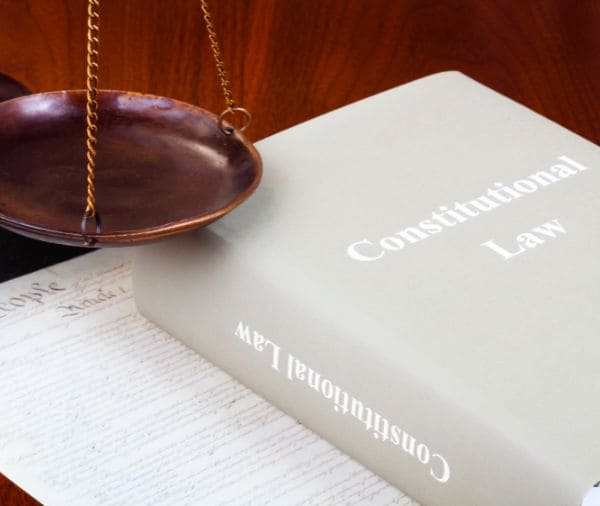This article analyzes what carbon credits are, their features, advantages and disadvantages, the implications of Bolivia’s Constitutional Ruling 040/2024, and how the country compares to others in the region regarding this issue.
WHAT ARE CARBON CREDITS?
A carbon credit is a mechanism that allows the compensation of GHG emissions through projects that reduce or prevent emissions. These projects include reforestation, renewable energy, clean technologies, or improvements in energy efficiency. Carbon credits can be traded in international markets, allowing countries or companies that exceed their emission limits to buy credits from those that have reduced emissions. Each credit represents one metric ton of carbon dioxide that was either not emitted or was removed from the atmosphere.
There are two main types of carbon markets: voluntary and compliance. The primary difference between them lies in the motivation for participation. In voluntary markets, companies participate on their own initiative to offset emissions and improve their environmental image. In compliance markets, participation is legally mandated, and companies must purchase credits to comply with emissions reduction regulations. In short, voluntary markets are optional, while compliance markets are a legal obligation.
One of the major strengths of carbon credits is their environmental benefit, as they help mitigate climate change by financing sustainable projects. Additionally, they foster innovation and encourage companies to invest in cleaner technologies.
DISADVANTAGES AND CRITICISMS OF CARBON CREDITS
Despite the benefits, carbon credits face several criticisms, including the following concerns:
Global Inequality
A widespread concern is that developed countries benefit more from carbon markets than developing nations. This is due to their historical emissions, greater technological and financial capacity to generate carbon credits, stronger political influence in international negotiations, and better access to information and markets. Critics argue that this perpetuates inequality, as developing countries often sell their credits at low prices and lack resources to invest in their own sustainable development. To address this, it is essential to promote technology transfer mechanisms, increase climate financing, implement compensation schemes, and reform carbon markets to ensure a fairer distribution of benefits.
Lack of Transparency
In some cases, there is no clear verification process for the projects generating credits. This lack of transparency means there is no reliable way to confirm that funded projects—such as reforestation or carbon capture—are genuinely implemented as promised and deliver the stated emissions reductions. This opens the door to issues like double counting (selling the same credits to multiple buyers), low-quality projects that fail to reduce emissions, and even harm to the environment and local communities.
The main causes of this problem include the absence of harmonized standards, high verification costs, and the complexity of some projects. Nonetheless, several jurisdictions are taking steps to improve transparency by developing more rigorous international standards, creating online platforms to give buyers access to detailed project data, and increasing audits and verifications.
A Temporary Fix
The criticism that carbon credits are merely a “temporary fix” refers to the concern that they may discourage large companies from investing in clean technologies. Instead of reducing their own emissions, companies may simply purchase credits to offset them. Additionally, it allows them to shift the burden of their emissions to projects in developing countries, raising doubts about the “additionality” of such projects—whether they truly generate reductions that wouldn’t have occurred otherwise.

CONSTITUTIONAL CHALLENGE IN BOLIVIA
In Bolivia, carbon credits have sparked debate due to the country’s Constitution, which promotes the integral protection of Mother Earth and prohibits the commercialization of its environmental functions. However, the Constitutional Ruling 040/2024, issued by the Plurinational Constitutional Court on June 19, 2024, marks a major shift in carbon credit regulation in Bolivia.
PLURINATIONAL CONSTITUTIONAL RULING 040/2024
This ruling arose from a constitutional challenge against Article 32.5 of Law 300 of 2012, which prohibited the commercialization of compensation mechanisms related to carbon markets. The petitioner argued that this prohibition limited trade rights and business freedom, and hindered climate change mitigation efforts by preventing the use of carbon credits as a mitigation tool.
The Constitutional Court ruled in favor of the petitioner, declaring the prohibition unconstitutional on the grounds that it:
- Restricted the rights to a healthy environment and freedom of commerce.
- Contradicted Bolivia’s international commitments, such as the Paris Agreement and the Kyoto Protocol, both of which promote the use of market mechanisms to combat climate change.
- Undermined the autonomy of Autonomous Territorial Entities (ETAs), which could benefit from carbon credit use within their jurisdictions.
Currently, the Office of the Vice President has requested clarifications from the Constitutional Court regarding Ruling 040/2024. Although this does not affect the substantive outcome of the decision, the matter is under review due to observations raised by the Vice President’s office.
This ruling opens the door to the commercialization of carbon credits in Bolivia. However, it also highlights the urgent need for specific legislation to regulate this market. At present, Bolivia lacks a clear legal framework to manage and trade carbon credits, which could hinder the development of efficient projects.
The current challenge is to craft regulations that protect the environment and uphold the rights of Mother Earth, without limiting the opportunities carbon credits offer to finance sustainable projects.
Compared to other countries in the region with advanced carbon market regulations, Bolivia is still in the early stages of regulatory development.
Ruling 040/2024 represents a significant milestone for Bolivia in its journey toward carbon credit regulation. While the ruling has enabled their commercialization, it is crucial that the country develops a clear and specific regulatory framework to support sustainable project development. This will not only contribute to the global fight against climate change, but also provide Bolivia with economic opportunities through integration into international carbon credit markets.
Creating this regulatory framework will be key to aligning national priorities with international commitments and ensuring Bolivia can fully leverage the benefits of a well-regulated carbon market
Need legal advice on carbon credits in Bolivia? Contact us expert attorneys for guidance on regulatory compliance and project development.
Frequently Asked Questions (FAQs)
What is a carbon credit?
A carbon credit is a certificate that represents the reduction or removal of one metric ton of carbon dioxide (CO₂) from the atmosphere. It can be traded in markets to help countries or companies offset their emissions.
Are carbon credits legal in Bolivia?
Yes. Following Constitutional Ruling 040/2024, carbon credits can now be commercialized in Bolivia. However, specific regulations for their implementation are still pending.
What is the impact of Ruling 040/2024?
The ruling declared unconstitutional the prohibition on trading carbon credits, enabling Bolivia to participate in carbon markets. It underscores the need for new legislation to regulate these mechanisms in line with constitutional principles and international obligations.
What types of projects generate carbon credits?
Projects such as reforestation, renewable energy generation, clean technology implementation, and energy efficiency improvements can generate carbon credits by reducing or removing emissions.
What risks exist in carbon markets?
Risks include lack of transparency, low-quality projects, double counting of credits, and inequitable benefit distribution—particularly disadvantaging developing countries.
The content of this article does not reflect the technical opinion of Rigoberto Paredes & Associates and should not be considered a substitute for legal advice. The information presented herein corresponds to the date of publication and may be outdated at the time of reading. Rigoberto Paredes & Associates assumes no responsibility for keeping the information in this article up to date, as legal regulations may change over time.




